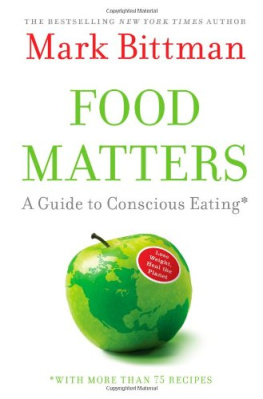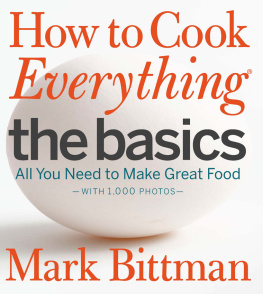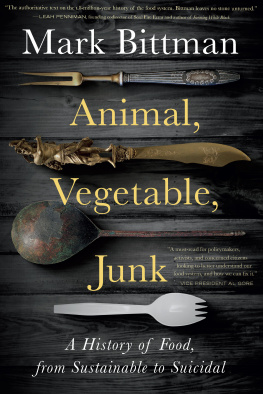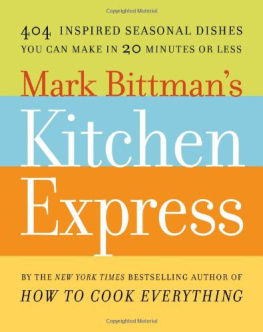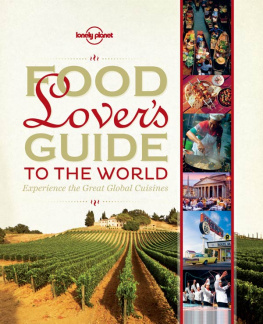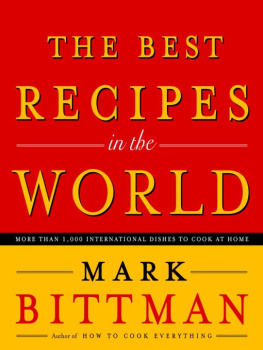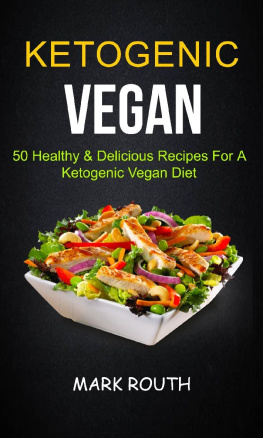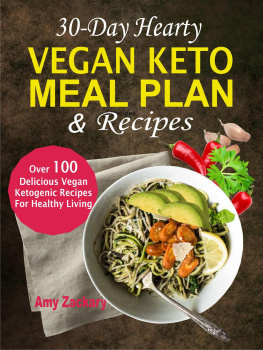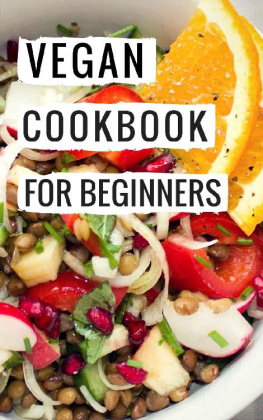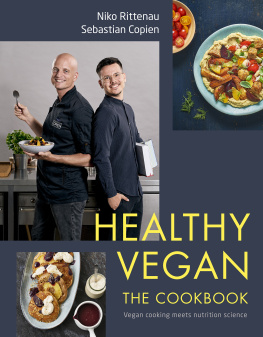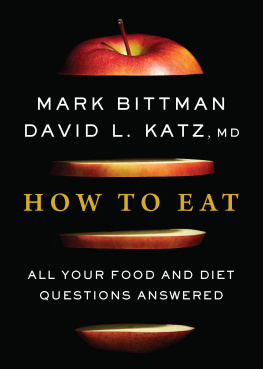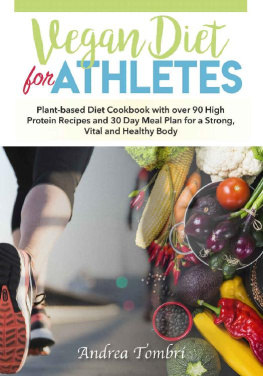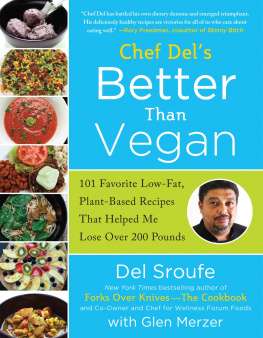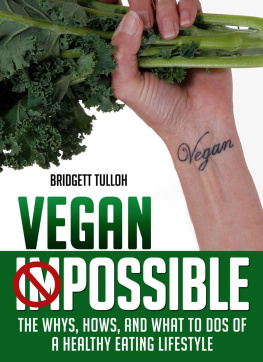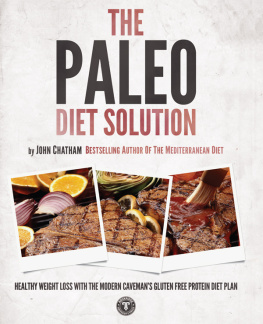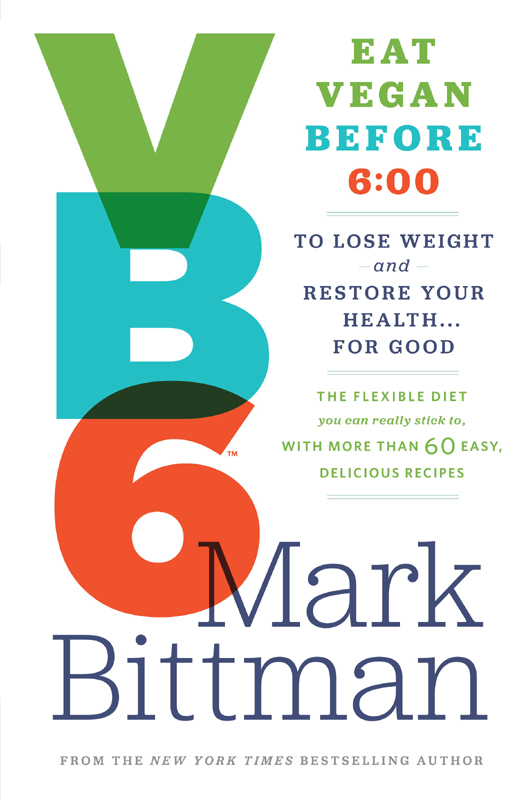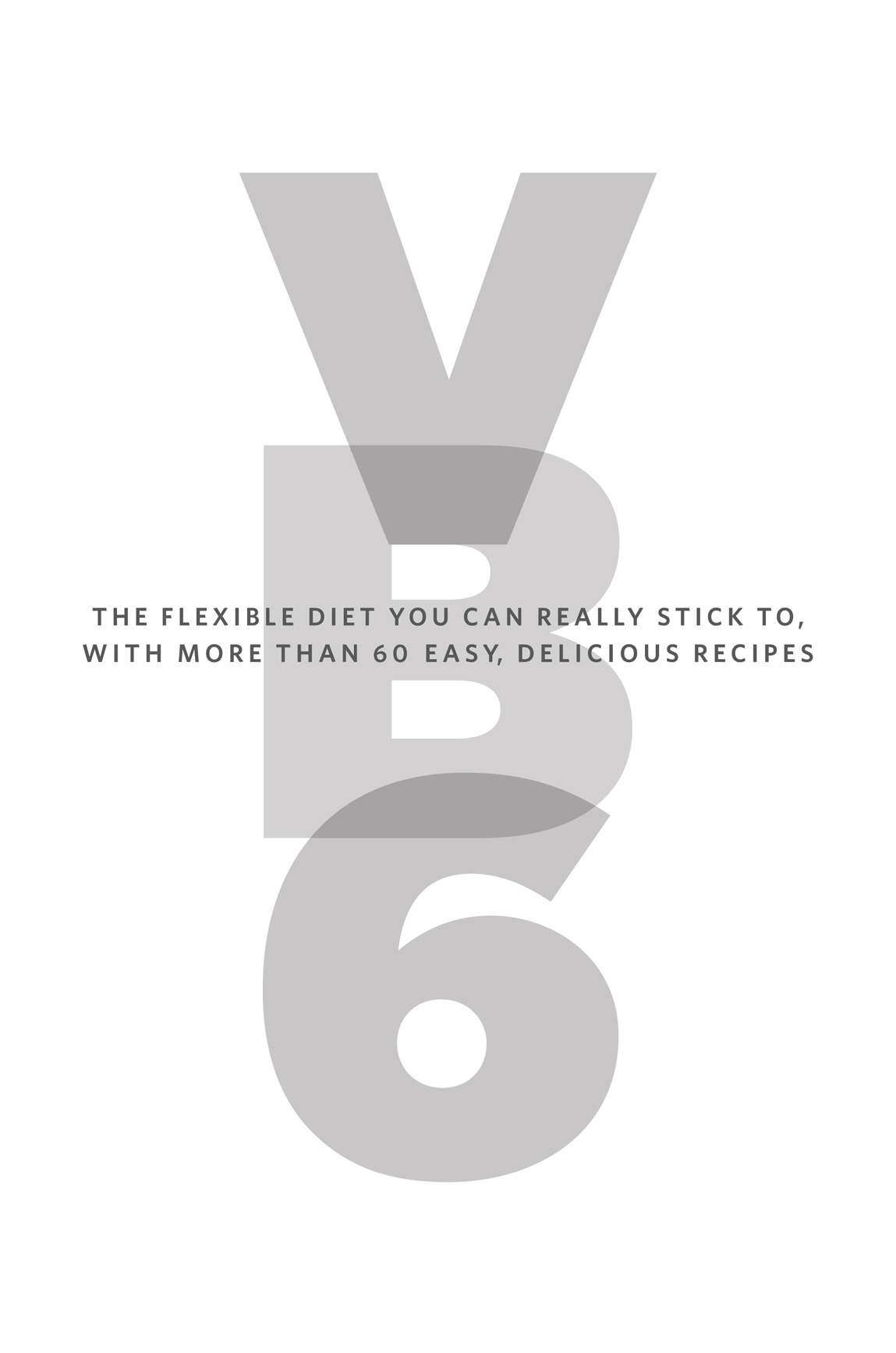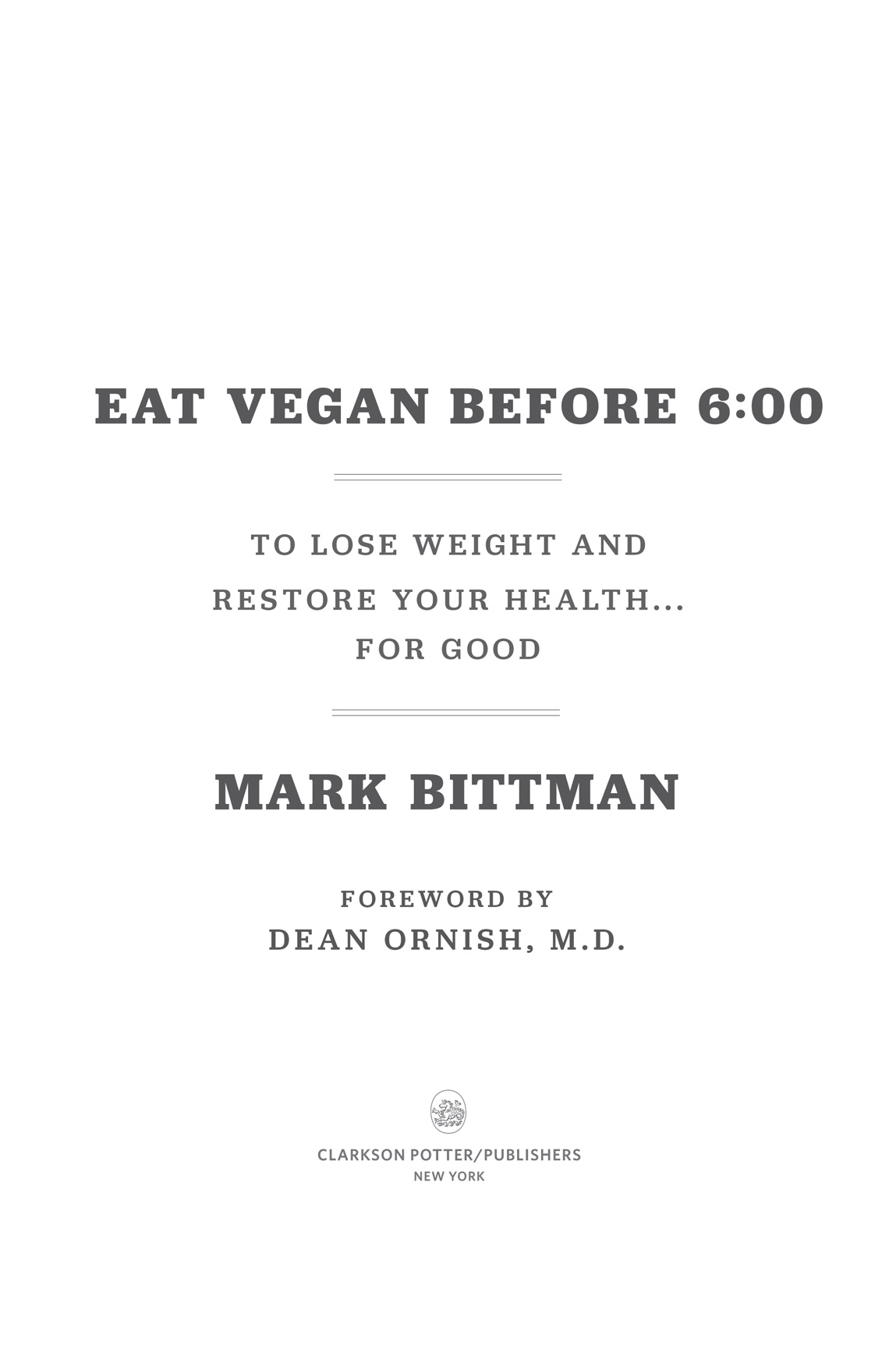OTHER BOOKS BY MARK BITTMAN
Fish: The Complete Guide to Buying and Cooking
Leafy Greens
How to Cook Everything
How to Cook Everything Vegetarian
How to Cook Everything: The Basics
How to Cook Everything: Bittman Takes on Americas Chefs
The Best Recipes in the World
Food Matters
The Food Matters Cookbook
The Minimalist Cooks Dinner
The Minimalist Cooks at Home
The Minimalist Entertains
Mark Bittmans Quick and Easy Recipes from the New York Times
The Mini Minimalist
Copyright 2013 by Mark Bittman
Foreword 2013 by Dean Ornish
All rights reserved.
Published in the United States by Clarkson Potter/Publishers, an imprint of the
Crown Publishing Group, a division of Random House, Inc., New York.
www.crownpublishing.com www.clarksonpotter.com
CLARKSON POTTER is a trademark and POTTER with colophon is a registered trademark of Random House, Inc.
VB6 and Vegan Before Six are trademarks of Double B Publishing, Inc., and may not be used without a license agreement from the owner.
Library of Congress Cataloging-in-Publication Data
Bittman, Mark.
VB6: Eat Vegan Before 6:00 p.m. to Lose Weight and Restore Your Health for Good / Mark Bittman.First edition.
1. Vegan cooking. 2. Breakfasts. 3. Luncheons. I. Title. II. Title: Eat vegan before 6:00 p.m. TX837.B5278 2013
641.5636dc23 2012046866
eBook ISBN: 9780385344753
Hardcover ISBN: 9780385344746
Cover design by Evan Gaffney Design
v3.1
Contents
Foreword
BY DEAN ORNISH
Im an unabashed admirer of Mark Bittmans work. And when you read this book, chances are you will be, too.
Mark is one of the rare people who thinks clearly, writes courageously, and explains eloquently. In my experience, people who have really mastered a subject can make it simple without being simplisticnot out of ignorance but from a profound and deep understanding.
Thats what makes VB6 such a great book.
There is a convergence of forces that make this the right book, right now. At a time when the limitations of high-tech medicine such as drugs and surgery are becoming clearer and the costs are unsustainable, the power of low-tech approaches such as what we eat are becoming more well-documented than ever.
For the past thirty-six years, my colleagues at the nonprofit Preventive Medicine Research Institute and the University of California, San Francisco, have conducted research proving the power of a whole foods, plant-based diet in combination with stress management techniques, moderate exercise like walking, and love and intimacy. In addition to preventing many chronic diseases, these comprehensive lifestyle changes can often stop and even reverse the progression of these illnesses, including coronary heart disease, early-stage prostate cancer, and Type 2 diabetes.
We found that changing lifestyle actually changes your genesturning on genes that keep you healthy, and turning off genes that promote heart disease, prostate cancer, breast cancer, and diabeteshundreds of genes in just three months. These diet and lifestyle changes can even lengthen your telomeres, the ends of your chromosomes that control aging. As your telomeres get longer, your life gets longer. People often say, Oh, its all in my genes; theres not much I can do about it. Knowing that changing lifestyle changes our genes is often very motivatingnot to blame, but to empower.
When I began doing this work, I thought that younger people who had less severe disease would do better, but I was wrong. One of the most provocative findings in all of our studies was this: The more people changed their diet and lifestyle, the better they felt and the more they improved in ways we could measure . At any age.
This is the scientific basis of VB6. Its not all or nothing. You have a spectrum of choices.
I find this message to be extraordinarily empoweringand a crucial tool for people to make sustainable changes in their lifestyle. Since the biological mechanisms that control human health and well-being are so dynamic, when you begin to eat and live healthier, you usually feel so much better, so quickly, that it reframes the reason for change from fear of dying (which is not sustainable) to joy of living (which is).
If you go on a diet, youre like to go off the diet. Diets are all about what you cant have and what you must do.
Ive learned that even more than feeling healthy, most people want to feel free and in control. If I say, Always eat this and Never eat that, it often makes people want to do exactly the opposite. This goes back to Dont eat the apple, which didnt turn out very welland that was God talking.
What matters most is your overall way of living and eating. If you indulge yourself one day, it doesnt mean you cheated or failed; just eat healthier the next. This way, you cant fail.
Mark Bittman understands this. The more you change your diet and lifestyle, the better you feel and the healthier you become.
If you eat vegan before dinner and indulge yourself afterward, youre likely to notice great improvements in your health and well-being without feeling deprived. As you start to feel better and notice how much healthier you are, youre likely to find yourself in a virtuous cycle in which you may want to do even more.
Of course, you could just as easily say you want to be vegan after 6:00 p.m. as before and youre also likely to get good results. Or vegan on alternating days. Or just have meatless Mondays.
You get the idea.
You decide how much you want to change your diet, and how quickly. If that degree of change is enough to accomplish your goals, then thats all you need to do. If not, you can do more.
Radically simple.
In addition to personal health benefits, the food choices we make each day affect other important areas as well. Whats personally sustainable is globally sustainable. Whats good for you is good for our planet.
As Mark Bittman describes here, eating a vegan diet, even part-time, can have an important impact on issues like global warming, health care costs, and energy conservation. This makes our dietary choices even more meaningful and, thus, more sustainable.
For example, many people are surprised to learn that animal agribusinesseating meatgenerates more greenhouse gases than all forms of transportation combined .
More than half of U.S. grain and nearly 40 percent of world grain is being fed to livestock rather than being consumed directly by humans. More than 8 billion livestock are maintained in the U.S., which eat about seven times as much grain as consumed by the entire U.S. population.
At a time when 20 percent of people in the United States go to bed hungry each night and almost 50 percent of the worlds population is malnourished, choosing to eat more plant-based foods and less red meat is better for all of usourselves, our loved ones, and our planet.
More than 75 percent of the $2.8 trillion in annual U.S. health-care costs are from chronic diseases which often can be prevented and even reversed by eating a plant-based diet at a fraction of the costs.


